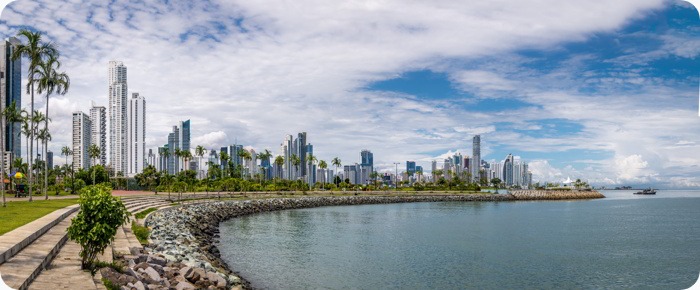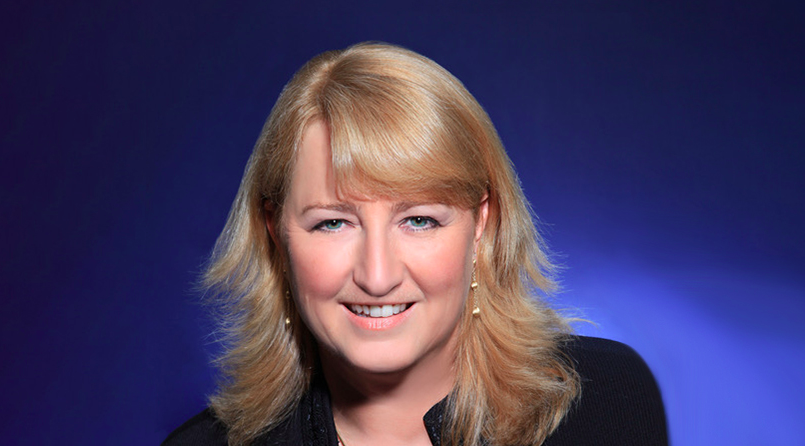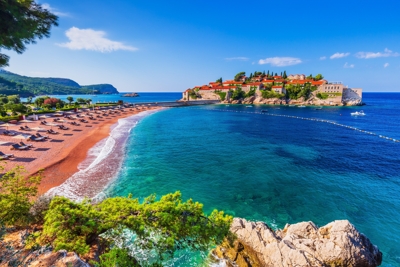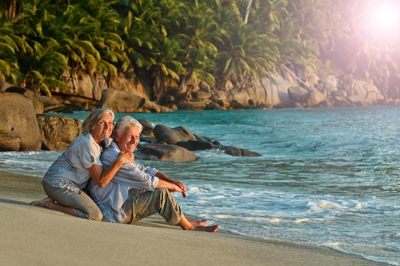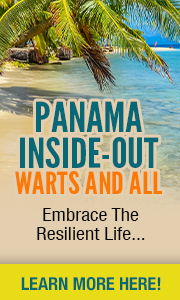Is Retiring In Panama Still A Good Choice? If So, Where? | Too Many Emails?
Panama Offers Every Lifestyle
A Retiree Could Wish For… All A Bargain
Sept. 26, 2021
Panama City, Panama
Also This Week: This Former Policeman From Washington Now Lives An Enchanted Life In The Highlands Of Panama… The Best Beaches In Panama? Here's What Team LIOS Has To Say… Why Did Kathleen Personally Choose Panama?... Humpback Whales, Nesting Turtles, And The Best Diving Of Your Life—This Country Is A Nature-Lover's Paradise… How To Retire Overseas With Training Wheels…When Retiring Overseas, Google Is Not Always Your Friend…
Almost Gone!
Final Hours To Choose Your Panama Resources—
All HALF OFFFind your perfect spot in Panama...
Enjoy a long list of exclusive benefits... freebies... access...
And so much more...
Plan your life in Panama with the help of our experts—for the next 24 hours, you can get their insights, judgments, and support at a whopping 50%-off discount...
Head here now (before midnight!) to access the 50%-off sale.
Dear Overseas Opportunity Letter Reader,
Panama remains, more than 20 years after we first recommended it, one of the best places in the world to reinvent your life overseas... full- or part-time... in retirement or at any other stage of your life...
With caveats.
I was the first to suggest Panama as a good choice for any North American looking for a place to retire that was sunny and cheap.
I made that recommendation for the first time in 1998. Back then, I didn't recognize the flaw in the instruction. I was telling North Americans to consider Panama for warm-weather affordable retirement...
Not realizing that the suggestion was nonsense.
You aren't retiring to Panama... neither then nor now... any more than you're retiring to the United States. When retiring anywhere in the world, you've got to thin-slice your options.
Two decades ago, Panama was homologous enough that my naively generalized recommendation wasn't as misleading as it would be today. In the past 20 years, this little country has developed into very different regions... each of which makes more or less sense for today's retiree looking to reinvent his life overseas.
Let's consider the specific options one by one...
Panama City
Generally, I no longer recommend Panama City for retirement. For sure, this city is not the screaming-bargain retirement option it was two decades ago.
Panama City has evolved over the past 20 years into a global business hub, a boomtown attracting investors, entrepreneurs, executives, and opportunity seekers from around the world. Panama's capital is a competitive financial services center and a banking haven. Big businesses from Dell and Procter & Gamble to Caterpillar, DHL, and Dole Food have based themselves here, invested in brick-and-mortar operations, and imported and attracted foreign workforces that total in the tens of thousands.
All this global attention and demand has translated into a steadily rising cost of living.
It has also meant continued development of city services and of the available standard of living. Panama City 2021 deserves a place among the world's brand-name cities for the bona-fide luxury-level lifestyle it hides.
I say hides, because "luxury" isn't the word that comes to mind when you see Panama City for the first time. Depending where specifically you're looking in this city you don't recognize that luxury's on the table until you've glimpsed beneath the grimy, gritty, sweaty surface.
But, as we've been reporting for some time, Panama City is at an historic turning point. It is evolving from the only real city in Central America... to a much more globally competitive metropolis. Panama City has a specific stated objective. It wants to be the next Singapore... and it's making accelerating progress toward achieving that goal.
In Panama City today, you can buy or rent a Pacific Ocean-view penthouse apartment with a doorman, a concierge, a gym, a spa, and pools with swim-up bar service... all the comforts of penthouse living in any brand-name city.
You can have a driver, a maid, a personal trainer, and a private chef...
You can eat out in five-star restaurants every night of the week. You can spend your days shopping for Hermès, Cartier, and Jimmy Choo and your nights hopping from club to club or engaged in high-stakes poker playoffs.
Each Friday (or Thursday... why not?), you can take off in your SUV for your beach villa or hop aboard your yacht for a weekend cruise...
That kind of jet-set lifestyle is increasingly common in Panama City.
If that's the kind of lifestyle you dream of for your retirement, then put Panama City at the top of your list, because luxury living Panama City-style is a relative bargain. That penthouse, the SUV, all the staff, all the nights out, all the weekends at the beach, and all the paraphernalia required to support it all comes at a fraction the cost of a comparable lifestyle in, say, Miami. You could live the luxe life in Panama City for as little as, say, US$5,000 per month (though you could also spend many times that on your bright-lights, big-city Panama adventure).
You could also live in Panama City on much less than US$5,000 per month, but life in this city can become a lot less comfortable on a more limited budget... which is why I no longer recommend Panama City as a top retirement haven.
Top luxury lifestyle haven, yes... ideal retirement choice, not so much. You have better city options if it's a budget-level cosmopolitan retirement you seek.
The biggest downside to Panama City living on any budget or with any agenda is the weather. It's hot and humid year-round. Thus the need for a weekend beach house...
City Beaches Area
The nearest beach destination to Panama City has become an extension of the city itself. Every Panama City resident who can afford one has a weekend escape in what's known as the City Beaches area...
Where, as in Panama City, it's possible to embrace a luxury-standard lifestyle.
Not everywhere. Coronado, the best known of the points along this stretch of coastline, is not a luxury living option. Coronado is mid-market and overrun with tourists, foreign and domestic. That's a good thing for the rental property investor... but doesn't make for an ideal get-away-from-it-all beach escape.
Other City Beaches spots, though, offer both five-star comfort and privacy at a fraction the cost of a fully appointed coastal good life most anywhere else I can think of.
East Coast Of The Azuero Peninsula (Chitré, Las Tablas, And Pedasí)
The east coast of Panama's Azuero Peninsula has been attracting retirees for the past dozen years and remains an appealing option for a more local coastal lifestyle.
More shopping and services all the time but not the great variety of top-line condo and beach house options you find along the City Beaches coast... yet.
West Coast Of The Azuero Peninsula (Mariato, Torio, And Quebro)
I discovered Panama more than 20 years ago but wasn't turned on to the west coast of its Azuero Peninsula until a decade later. When Lief and I began spending time on this coast, no one else had ever heard of it... not foreign investors and not Panamanians either. On this coast, we were pioneers.
The pioneer life isn't without challenges. Azuero's western coast is more remote and undeveloped than the eastern coast of this peninsula; services can be unreliable, roads rutted.
The flip side of remote is private. For us, that was a priority agenda when we targeted this stretch of the Pacific.
Today, services are catching up... as are other foreign investors and tourists, especially fishermen and surfers. This is not only one of the most beautiful stretches of coastline in Panama but in the world, and both the fishing spots and the surf breaks just offshore are, likewise, world-class.
Wealthy locals feeling crowded at the City Beaches these days are beginning to move out to western Azuero. Those choosing to make the longer drive for their beach escapes are rewarded with more elbow room and, for my money, much more impressive land- and seascapes.
Boquete
Say "Panama" and "retirement" in the same sentence, and most listeners hear "Boquete."
The tiny mountain village of Boquete was targeted for development for the foreign retiree market by one gringo developer in particular named Sam Taliaferro. Sam introduced me to Boquete on the day that he closed on the piece of land he eventually developed into Valle Escondido, one of the best-known private expat communities in all Central America.
In addition to his Valle Escondido development, Sam invested in restaurants, hotels, and a golf course in Boquete, all intended to attract the foreign retiree buyer.
As a result, Boquete, Panama, in 2021 is home to one of the biggest communities of foreign retirees in the world. That has its advantages and its downsides.
More English is spoken on the streets and in the cafés of Boquete than Spanish, and the foreign retiree never looks far for other foreign retirees to pal around with. The retiree moving to Boquete doesn't have to learn a new language if he doesn't want to and has an instant support network to help with all phases of the transition.
Maybe that sounds like just the kind of place you're hoping to find for your overseas retirement reinvention or maybe it sounds, as it does to some, like a Gringolandia you'd rather avoid. Lots of foreign retirees with lots of time on their hands and not enough to fill all that time can be a formula for discontent. Idle hands and all...
The other downside to the big community of expats-in-residence in Boquete is the rising cost of living here. Boquete is no longer a bargain retirement option.
Santa Fe
Santa Fe is Boquete before Sam Taliaferro.
Santa Fe is a lovely mountain village with a small local population and limited infrastructure and services, a beautiful, tranquil, picture-postcard highlands escape.
As in Boquete, the climate is more comfortable than down at sea level.
Life in Santa Fe could be simple, safe, and super-affordable. This is a place where you could live on as little as US$1,000 per month if you're up for going very local.
In truth, living in Santa Fe, you're going local whether you want to or not. You have little alternative.
Sincerely
Kathleen Peddicord
Founding Publisher, Overseas Opportunity Letter
P.S. All this past week, as part of our World's Grand Reopening Event, we've been doing our best to make it as easy and affordable as possible for you to find out everything you need to know about living, retiring, or investing in Panama… the country you've told us is #2 on your post-pandemic travel wish list.
Today is your last chance to take advantage of this opportunity to save a full 50% off all of our top Panama resources, including our best-selling Live And Invest In Panama Video Conference Kit.
As of midnight tonight, all of these products revert to full price.
Full details are here.
Revealed: The Top 14 Places To Live In Panama Hot off our virtual presses is the 2021 Panama Index...
Created by our on-the-ground team, this all-new survey ranks and rates Panama's best destinations across 10 different categories.
Where are the 14 best places to live in Panama based on your goals, needs, and budget?
It's all revealed in the one-of-a-kind 2021 Panama Index...
Head here now to learn how to get it FREE.
P.P.S. What else this week?
- Water rushing over rocks... lush, tropical jungle... the music of hundreds of exotic birds...
"This is what Frank Stegmeier wakes up to every day.
"This is Rio Encantado (Enchanted River), an ecotourism destination on the Caldera River in Chiriquí, Panama..."
- Now that Panama has fully reopened and is again rolling out the red carpet for visitors, we here at Live And Invest Overseas are reminding ourselves of all the reasons this little isthmus is such an appealing place to spend time.
"You've heard of Bocas del Toro and the San Blas Islands, but what if you're not into crowds… or you prefer beaches better suited to surfing?
"Sometimes it takes an insider's perspective to find the best beach spots.
"That's why we asked members of the Live And Invest Overseas team at our headquarters in Panama City to share their favorite Panamanian beach destinations..."
- Why were Lief and I drawn to Panama in the first place... some 24 years ago... and how have we come to be more invested, personally and professionally, in this isthmus than we are anywhere else in the world?
"All Panama but especially Panama City has been one of the greatest economic success stories of the past two decades. The massive growth has been due largely to foreign investment.
"We first recommended Panama as a buy in 1998, and we are more bullish on this country's prospects today than ever... the current pandemic marketplace notwithstanding..."
- We remind you often of the opportunities on offer in Panama for the retiree… the investor... the second-home-at-the-beach buyer... and the entrepreneur...
"Indeed, this country continues to offer some of the world's best chances for making money and doing business. We're so focused on that face of Panama that sometimes we neglect Panama's other side... her natural aspect.
"Panama is a natural marvel. Few places on Earth offer the wildlife-watching, close-to-nature experiences you find here..."
- Any journey begins with a decision…
"Our journey to Panama began with the decision to establish residency in this country. We decided we'd establish residency as a backup, even before we decided to move here.
"Well, in fact, we didn't decide to move here. My lovely wife of 35 years Shyla decided she was moving here. She was kind enough to invite me to come along..."
- The Internet is perhaps our world's greatest source of information… current and outdated… accurate and made-up…
"That's why we don't always consider Google our friend.
"Instead, we count on the network of contacts we've developed around the world over the past three-and-a-half decades for intelligence when we need it.
"When we encounter conflicting information—online or otherwise—we reach out to someone on the ground who can give me the real deal in real time…"
More From Live and Invest Overseas

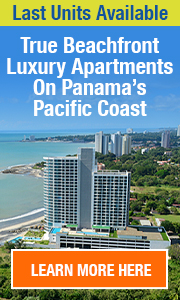

View Online
Live and Invest Overseas is:
- Founder and President: Kathleen Peddicord
- Publisher: Harry Kalashian
- Chief Real Estate Editor and Offshore Living Letter Editor: Lief Simon
- Overseas Property Alert Editor: Lynn Mulvihill
- Latin America Correspondent: Lee Harrison
- Editor At Large: Kat Kalashian
- Intrepid Correspondent: Paul Terhorst
- Euro-Correspondent: Lucy Culpepper
Our writers and contributors greatly value your comments, questions, and feedback, good and bad. If you have a particular area of expertise you'd like to share insights on, we'd love to hear from you. Reach us at: Editorial@liveandinvestoverseas.com.
We welcome letters to the editor and do our best to respond to every reader email we receive. Please note that, if you would prefer that we not publish your letter to the editor, please indicate that in your email. Otherwise, please understand that we might choose to include your letter in one of our publications.
Copyright © 2021 Live and Invest Overseas. All Rights Reserved. Protected by copyright laws of the United States and international treaties.
If you have any questions or feedback, get in touch at CustomerService@liveandinvestoverseas.com. We sent this email to you because you or someone using your email address subscribed to this service. If you have not already done so, please whitelist Overseas Opportunity Letter. This will help us ensure you get every e-letter without interruption.
Nothing in this e-letter or any communication with Live and Invest Overseas, its employees, or its agents may be construed as counsel on personal investments. Employees, the Principals, as well as Live and Invest Overseas may be invested in specific markets, companies, or real estate opportunities covered in the material. Live and Invest Overseas may also have marketing agreements and/or receive advertising fees, commissions, or other compensation from companies, developers, or individuals with investments, products, or services covered in our publications.
You should always seek professional investment or legal advice and do your own due diligence, including the thorough review of any business plan, private placement memorandum, or offering material of any kind before investing or buying products or services covered in our publication. While Live and Invest Overseas does its own due diligence before writing about or recommending any investment, product, or service, you as our reader may not rely on this due diligence or substitute it for doing your own due diligence. Live and Invest Overseas is not responsible for the success or failure of any investment, the increase or decrease of any real estate purchase, or the successful fulfillment of any product or service about which we write.
This newsletter may be used only pursuant to the subscription agreement, and any reproduction, copying, or distribution (or redistribution), electronic or otherwise (including on the worldwide web), in whole or in part, is strictly prohibited without the express written permission of the publisher, Live and Invest Overseas, Calle Alberto Navarro, Casa No. 45 (El Cangrejo), Panama, Republic of Panama.
You are currently subscribed to Live And Invest Overseas as: stevescott@techacq.com through the mailing list: "live-and-invest" Please add (white-list) editorial@liveandinvestoverseas.com to your e-mail address book to ensure delivery.
Forward to a Friend | Subscribe | Too Many Emails? | Unsubscribe
Sunday, September 26, 2021
Fwd: From Laid-Back To Luxury, Panama Offers Every Lifestyle A Retiree Could Wish For… All A Bargain
Friday, September 24, 2021
Fwd: How to Be a Long-Term Thinker
From: Ron Friedman, Ph.D. <ron@ignite80.com>
Date: Fri, Sep 24, 2021 at 7:05 AM
Subject: How to Be a Long-Term Thinker
To: <stevescott@techacq.com>
When you think about it, every choice you make comes down to happiness now or happiness later.
Take going to bed on time.
On the one hand, watching another episode of Ted Lasso will grant you immediate happiness. On the other, waking up well-rested and refreshed will bring a happier tomorrow.
In most cases, choosing happiness later leads to wiser choices, greater success, and more wealth. We all know this. Yet we can still do a vastly better job of consistently optimizing for the future.
But how?
That's the topic of Harvard Business Review contributor Dorie Clark's new book, The Long Game. Dorie is a good friend and a gifted writer. Her new book is engrossing, sorely-needed, and wise.
To celebrate the release of Dorie's book, I invited her to share a few of the key insights in this brief interview. I hope you find it valuable.
Dorie, in your new book, The Long Game, you argue that mastering long-term thinking is an essential skill for getting ahead. So what's the secret? How do you train yourself to become a long-term thinker?
There are three key components in becoming a long-term thinker.
The first is clearing enough white space so you're able to think about the future. Long-term thinking doesn't require an inordinate amount of time – but you do need some time, and many of us are so jam-packed, we literally never get a moment to step back and reflect on some basic questions about our priorities.
Second is to focus on what matters – to you, not to others or what society says is the right choice. Of course, we all have bills to pay, but that doesn't mean work has to be thankless. We can all identify small ways, over time, to work toward learning new skills or exploring interests that are meaningful to us and may become professionally relevant.
Finally, we need to 'keep the faith' and persevere through rejection and gatekeepers, because inevitably on the path to meaningful long-term goals, there will be detours. It'd be far more surprising if there weren't! Far too many of us cede power to other people and their opinions. If one person – even five people or 10 people – tells you "no" or that something isn't good, that doesn't mean you should give up. It just means they're blocking the door, so you may need to find another window to climb in.
A key challenge to staying focused on long-term goals is that busyness warps our thinking. You believe it's not just technology and the ubiquity of work that makes us busy -- it's something else. What is it?
It's true we all have too many meetings and too many emails. That part is obvious. But there are also hidden reasons why we may find ourselves – again and again – committing to too much and feeling overwhelmed.
Silvia Bellezza of Columbia Business School and her colleagues have done interesting research about the fact that in many Western countries, especially the U.S., busyness is correlated with high status and being "in demand." Many of us may subconsciously worry that freeing up our schedules would telegraph to others that we're not actually that important. Even worse, we might begin to feel that way ourselves – or be forced to deal with emotionally uncomfortable questions like, Am I in the right field? Are my actions leading me toward the goals I want? Should I be doing this task at all – and if not, what *should* I be doing?
In many cases, just keeping our heads down and working ridiculously hard is easier than grappling with those existential issues.
An interesting approach you identify for staying on track is learning to apply "strategic patience". What is strategic patience and how do you get good at it?
I've never been a fan of "patience" – at least, the way the term is commonly used. So often, it's a way of telling people to back off and shut up: Just be patient, it'll work out. I always thought: How do you know?!?
I'd rather have more control over my destiny, but I recognize that some things do take a while to pan out. We can try to speed that process up, but for meaningful, long-term goals, the process really might take months or years - or even decades. So we do have to be patient in that respect. But we don't have to be passive.
That's why, in The Long Game, I write about what I call 'strategic patience.' It's understanding that things may take a while, but also actively creating hypotheses about what you expect will happen, testing them, and adjusting as necessary. You're not just sitting back: to the greatest extent possible, you're controlling what you can control and making things happen.
You can learn more about Dorie's new book right over here. You can also take Dorie's self-assessment on becoming a long-game strategic thinker here.
All the best,
Ron
Ron Friedman, Ph.D.
(Speaking) www.ignite80.com
(Books) Decoding Greatness | The Best Place to Work
(Twitter) @RonFriedman
(LinkedIn) Connect
My goal is to help high achievers get more done in less time. If you'd prefer not to receive any more emails with science-based tips for becoming happier, healthier, and more productive, please use one of the following buttons:
Receive fewer emails | Remove my name | Update my contact information
Thursday, September 23, 2021
Fwd: capital raising checklist segmented by size of the raise
From: Richard C. Wilson <clients@familyoffices.com>
Date: Thu, Sep 23, 2021 at 9:12 AM
Subject: capital raising checklist segmented by size of the raise
To: <stevescott@bydf.com>
Steve
A group looking to raise just $400,000 does not need the same level of marketing materials that someone raising $40M should be putting into place.
This is because if you are raising only $400k you may get it done with just 1 to 4 investors or maybe up to 10 investors. These investors may be putting in smaller amounts in real terms but also smaller amounts as compared to their total net worth.
Typically smaller allocation decisions can be made faster, with moderate due diligence, and many times these check sizes don't require sign-off from an investment committee, publicly-traded entity, or a board of advisors.
Also, the deal can get done quickly, and if you spend 3-4 months preparing a $400k raise while your competition gets it done in 2 months, you are slow out of the gates to grow with the capital.
At each level from $0-$1 Million from $1M-$10M, $10M-$25M, and $25M+ raises there are different checklists of materials and strategies to put into place. Below is a set of checklists of materials to consider having in place for these various sizes of raises.
$0-$1M
- One-Pager on the deal detailing the team, terms process, location, and offering visually (not a one-page memo of pure text)
- Short 12-page pitch deck if time permits
- Short 2-4 minute video from the founder on the deal for texting and embedding in the one-pager and pitch deck
- One-liner on the investment offering
$1M-$10M
- Everything above +
- Short 12-19 page pitch deck
- Timeline of track record and development of the strategy
- Drone video of the asset or walkthrough video or 3D modeling of the product or device
- A simple website and a logo that doesn't look like high school clip art or a weekend job slanting colored text in PowerPoint to avoid creating something professional
- Professional headshots of team members and assets, nothing amateur/thrown together feeling
- A brand name that makes sense and tells clients or investors why they should work with you, or what your strength is
$10M-$25M
- Everything above +
- Materials that can be mailed to prospects for follow up, an investor newsletter, shock and awe box, folder of educational materials, or a book
- Consider using a whiteboard explainer video
- Consider engaging with an outsized firm to help add institutional polish to your materials and streamline the process of creating everything
- CRM needs to be set up and used - critical software piece
- Consider structuring multiple membership classes or a Co-GP/JV partner to gain an anchor investor or appeal to investors of different sizes. Also, terms could be different so those investing more pay less in fees.
- Strategically secure an industry-recognized name to invest first or invest a large check to add to deal momentum
- Develop 10 FAQs and have answers to those questions if you are going out to many investors broadly
- Book public speaking engagements and record those talks
$25M+
- Everything above +
- Master Due Diligence Questionnaire
- Documentary-style interviews with clients, investors, and founders, 7-15 minutes in length
- If your expertise and the industry is appropriate consider publishing an authoritative whitepaper or writing a book
- Fully built out data room for investors ready at any time
- Strategically map out the investor clubs, meetings, and conferences and network/pay to speak at them
- Third party due diligence reports in place from 2 third party organizations
I hope you found this checklist useful for which size capital raise you are currently in. Please let us know what questions you have regarding this and our 10 live and HD recorded workshops on raising capital available for free to Charter Members in the Family Office Club. If you need help implementing the above please speak with Andres Ospina on our team, (Andres@FamilyOffices.com) who leads our creative team at PitchDecks.com.
Richard C. Wilson
Founder and CEO
(305) 503-9077
Family Office Club
11445 E Via Linda Suite 2-623
Scottsdale, AZ 85259
http://FamilyOffices.com
Update your email preferences. The Family Office Club team is located at 11445 E Via Linda, Suite 2-623 in the village of Scottsdale, Arizona
Tuesday, September 21, 2021
Fwd: "Change Only Happens When Somebody Sticks Their Neck Out"
From: Adam Bryant via LinkedIn <newsletters-noreply@linkedin.com>
Date: Tue, Sep 21, 2021 at 5:45 AM
Subject: "Change Only Happens When Somebody Sticks Their Neck Out"
To: Steve Scott <stevescott@techacq.com>
|
Friday, September 3, 2021
Fwd: One More Delightful Surprise In Europe--No, They Will Not Tax You To Death
From: Kathleen Peddicord <editorial@liveandinvestoverseas.com>
Date: Fri, Sep 3, 2021 at 11:41 AM
Subject: One More Delightful Surprise In Europe--No, They Will Not Tax You To Death
To: <stevescott@techacq.com>
| One More Delightful Surprise In Europe—No, They Will Not Tax You To Death Sept. 3, 2021 Paris, France 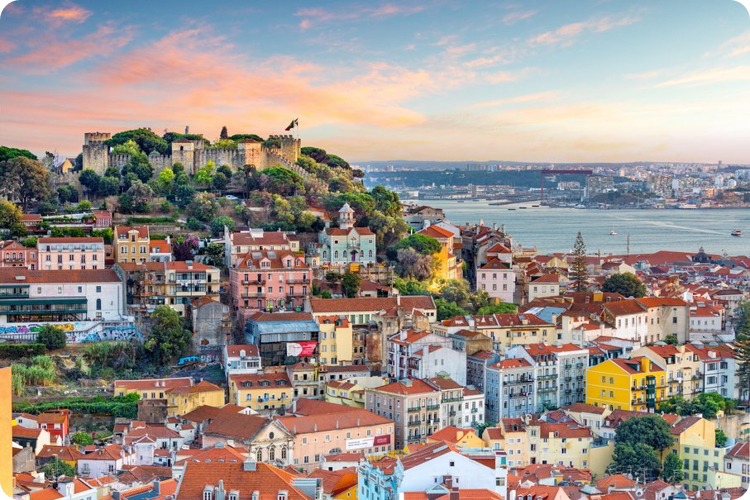 PLUS:
Dear Overseas Opportunity Letter Reader, People often take Europe off the list of possibilities for where to move or invest overseas because they assume the residency options are too limited or expensive... and the tax implications too onerous. The truth is that residency can be easier to obtain in some European countries than it is in some Latin American countries. I'd qualify Portugal and Cyprus as among the easiest and without question the most affordable countries in the world to become a resident. In each case, you can qualify simply by showing a minimum monthly income. In the case of Cyprus, the minimum amount required is but 9,570 euros per year. That works out to 797.50 euros per month. At the current exchange rate, that's about US$905... which is about US$600 less per month than the average Social Security check. That is to say, a concern that residency will be too difficult or too expensive to qualify for should not be the reason you don't retire to Europe if Europe is where you'd like to retire. Neither should the tax burden of living or investing in Europe keep you away... because the tax liabilities you might incur in that part of the world are not necessarily more burdensome than they are in the United States. Sometimes they can be less burdensome. It all depends on where, specifically, you want to live and how your income is derived. Portugal, our number-one overall choice for where to live or retire overseas for the past four years running, is also the number-one destination in Europe for both ease of residency and minimization of taxes. As a nonresident, you can spend up to 90 days in any rolling 180-day period in any country in the Schengen zone, including Portugal. That could be 90 days straight in a Schengen country followed by 90 days outside the Schengen zone... or you could spend 30 days in and 30 days out on an ongoing basis. If you'd like to be able to stick around in Portugal indefinitely, all you have to do is to show income of at least 1,200 euros per month. That's more than is required for becoming a resident of Cyprus but still a very reasonable amount. Following this residency path, you'll be required to spend at least 183 days in Portugal. Then, thanks to your residency status in Portugal, you'd be able to spend the rest of the year in any Schengen country(ies) of your choosing. As a legal resident of one EU country, you can spend as much as 90 days at a time in any other EU/Schengen country. As a resident of Portugal, what would your tax obligations look like? Portugal currently offers what it calls a Non-Habitual Resident Tax Regime. The poorly named tax law allows new residents who haven't been tax resident in the country for the last 5 years to apply for a 10-year tax break. Bottom line, this means that the bulk of your income during those 10 years will be taxed at a reduced rate in Portugal. In addition, Portugal offers a Golden Visa program whereby you can obtain residency by making an investment in real estate. Going this route, you'd be required to spend but a week a year on average in the country (rather than the 183 days per year required under the proof-of-income option). The invest-for-residency option suits someone looking for a path to EU citizenship but not wanting or able to spend the majority of his time actually living in an EU country. Regardless which path you pursue to establish residency in Portugal, you can apply for citizenship after 5 years of legal residency... and after 10 years of illegal residency. Yes, you read that right. Portugal allows you to apply for citizenship if you can show you've been residing in the country illegally for 10 years or more. I love Portugal. Portugal isn't the only European country where you can gain residency simply by showing you can support yourself. France, Spain, Italy, and Ireland all also offer residency options based simply on how much income you can prove. Ireland's program is the most onerous. The minimum-income requirement to qualify is 50,000 euros per year per person. The biggest possible monthly U.S. Social Security check adds up to less than 30,000 euros a year... meaning no American with only Social Security income to show for himself is going to pass the test. Ireland put these minimum-income requirements in place several years ago, and no one I've spoken with in the country really understands why. You don't need 50,000 euros per year to live comfortably in Ireland. Also note that the residency permit you are issued under Ireland's income program doesn't come with a path to Irish citizenship. Ireland doesn't seem to want more foreign residents or dual nationals. Many European countries have no set income requirements. The amount you'll be required to show to establish residency will depend on the immigration officer you're assigned and the region of the country where you submit your application. This is one reason I recommend using an immigration attorney to help you with the process. A good immigration attorney can help guide you through these subtleties. The administrative process associated with a residency application differs country to country. In most cases for Europe, you must begin the process at the nearest consulate before traveling to the country; in others, you apply after you've arrived. What about your tax burden as an American in Europe? We've addressed the situation in Portugal. In general, a retired American shouldn't owe any more in taxes on his pension and/or Social Security income than he would were he living in the States. Every EU country except Croatia has signed a tax treaty with the United States. These determine which country gets to tax pension and Social Security income. Typically, the United States gets to tax the Social Security income of an American overseas and the country of residence gets to tax that American's other pension income. This is not always the case, though, so check with a tax professional to confirm the treaty specifics for the country where you want to live. All that said, as I said, bottom line, if your only income is retirement income, you shouldn't pay more in taxes as an American retired overseas than you would as a retired American living in the States. If you have a portfolio that kicks off rental income, dividends, or interest income, you'll want to dig a little deeper into the details of the relevant tax code. However, again, in most cases, you'll likely find that you'll not be taxed more by living in a European country. You may be taxed less depending on the country and its tax rates and bands. The biggest tax hit in Europe can come from social charges. Social charges associated with earned income are paid mostly by the employer. However, in some places, social charges are also imposed on passive income... another reason to take professional tax advice before making a move. You've probably also heard about wealth taxes. France's wealth tax is notorious. Historically, if you were a resident of France, the country's wealth tax applied to your worldwide assets, including jewelry (difficult to track and to value). If you hit the threshold (1.3 million euros, US$1.5 million), the tax started at a fraction of a percent. In 2018, France changed its wealth tax law. Now only real estate is included when calculating the value of your assets to determine whether or when the wealth tax applies. The threshold of 1.3 million euros remains. If you're a real estate tycoon wanting to live in France, you should speak with a French tax advisor before establishing residency to understand what you could do to mitigate any potential wealth tax hit. France gets a bad tax rap, but, in fact, Italy and Spain are probably more painful tax regimes... because of how each country calculates the amount of tax owed. The tax bands are similar among all three, but France divides household income by the number of units living in the household before applying the tax bands. Spain imposes a wealth tax that varies by region. Italy charges a wealth tax on financial assets held outside the country. However, Italy has introduced a tax incentive plan similar to Portugal for certain regions of Italy. Move to Abruzzo, for example, and you can avail of a 7% flat tax and not be liable for the wealth tax. Also, when comparing what you'd owe as an American living in the States versus what you'd owe as an American living overseas, don't forget state taxes. When it comes to taxes, everyone's situation is different. My overriding point is that you should not give up on your dream of a new life in Europe because you fear you'll owe more in taxes as a resident in that part of the world than you would if you just stayed home. I'd be surprised if that's the reality. Lief Simon Editor, Offshore Living Letter P.S. Next month, Kathleen and I will co-host this year's Live and Invest in Europe Virtual Conference. With the help of dozens of our top contacts on the ground in Europe's most appealing places to think about spending time and money—including Portugal, France, Italy, Spain, Malta, Cyprus, Montenegro, Croatia, and Ireland—we'll look at all aspects of creating a new life or diversifying your investment portfolio in this part of the world—including the particulars of establishing residency and figuring your tax burden country by country. As I've explained above, don't let a worry over your potential tax liabilities be the reason you take Europe off your shopping list. We'll show you how to manage and mitigate your euro-land tax burden when we convene for this special program next month. This is your chance to hear from and interact with experts and expats on the ground in Europe's most appealing, most welcoming, and most affordable places to call home. The first 100 who register save US$200. These places are filling very quickly. Grab yours here now before it's too late.
"Kathleen, what did you do with the house you own in Croatia? Did you rent it out? If so, were the yields good because if it was not lived in for 16 years? I didn't understand your recent comment. If you left it empty for that long, the vermin would take over. Cheers." --Roy A., New Zealand We bought our tumbledown stone farmhouse in Istria 16 years ago... and then ignored it. No, we didn't rent it... because it's not rentable. It's not habitable. We're this month, finally, undertaking the renovation in earnest with the help of the team we've put in place on the ground there. And we're happy to be able to report that, no, the vermin did not take over... just the brambles! "Kathleen, Portugal is on my mind. What is the income amount required for residence? I have seen per-person amounts. What is it for a couple? Is it times two? Thanks." --Alice K., in the Overseas Living Unlimited Clubhouse No, the minimum income requirement for a couple to qualify for self-sufficiency residency (as it's referred to) in Portugal is not two times the amount required of a single. The country doesn't stipulate a specific amount, and immigration officials have some leeway in what can be approved. Generally, our contacts say you should figure one-and-a-half times the single amount (which is 1,200 euros per month). "Kathleen, I would like to know what countries require the least money to be able to get permanent residency? I can provide documentation as a retired couple. We have an income of C$5,500 per month. "Looking forward to hearing from you. "Thank you and have a great day!" --Alejandro F., Canada With C$5,500 of income per month, you can qualify for residency nearly anywhere in the world... definitely anywhere on our top retirement havens list... including all of our options in Europe. 
| ||||||||
| Thanks for reading Overseas Opportunity Letter, a free daily email service brought to you six days a week by Live and Invest Overseas publications. To learn more or to subscribe, see: https://www.liveandinvestoverseas.com
| |||||||
| You are currently subscribed to Live And Invest Overseas as: stevescott@techacq.com through the mailing list: "live-and-invest" | |||||||
| Please add (white-list) editorial@liveandinvestoverseas.com to your e-mail address book to ensure delivery. | |||||||
| Forward to a Friend | | | Subscribe | | | Too Many Emails? | | | Unsubscribe | |
